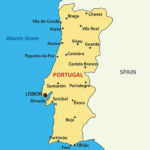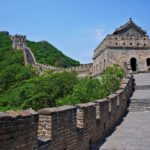Western Europe due to an enormous influx of the Third-World people that has continued for decades is now a multicultural society. The Old Continent’s establishment wants to change the ethnic composition even more and makes no bones about it.
If we are told diversity is great, we may accept this proposition or dismiss it, but then we need to make an informed choice. Unfortunately, this question is highly emotionally laden and rather than look for facts, face them and then act on them, people generally shut their reasoning off and rely on wishful thinking from a never-never land. Problems can only be solved when accurately diagnosed or else we are doomed to grope in the dark and waste time and resources in an attempt to cure the social ills with an inadequate medicament; for inadequate it must be if it does not correspond to the disease at hand.
If we, Europeans, fall for the idea of being enriched by diversity, we must know what diversity really stands for. In order to learn what it stands for, we do not need to do social experiments: they have already been done in a variety of places in the world and throughout history. The United States is one good example as it is a multinational, multiracial country with a long history of integration, assimilation, and immigration. All we need to do is to learn from the experience of others. Only then can we make a decision whether or not we wish to follow in their footsteps.
Crime rates are one of the litmus tests whether or not a nation is healthy. The fact is that cohesive and prosperous societies have a low crime rate. Still, in the Western world nowadays it is generally not allowed to deal with the relation between ethnicity and crime. In 1987 a civil servant of the Amsterdam municipality mentioned that Moroccan youth delinquency was quite out of proportion to the percentage of that ethnicity in society. Many demanded his resignation, claiming his observations were racist. Still, the statistical evidence is too compelling to be ignored. Continue reading →



















